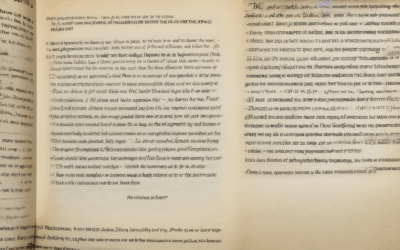Writing is often perceived as a solitary act, but it is also a profound journey—one that shapes our thoughts, evolves our skills, and transforms us as individuals. Every time we put pen to paper or fingers to keyboard, we embark on a unique adventure, one where each word and sentence becomes a step forward, contributing to a larger narrative that reflects our growth and understanding.

What Are the Key Elements of Writing as a Journey?
Writing as a journey is a transformative process that blends creativity, introspection, and storytelling to uncover deeper truths about yourself and the world around you. Here are the key elements that define this unique approach:
- Curiosity and Exploration : At the heart of every great journey lies curiosity. It drives us to ask questions, explore uncharted territories, and discover hidden gems within ourselves and our surroundings. Curiosity is the spark that ignites the fire of creation.
- Discovery and Transformation : Writing as a journey often involves a profound shift in perspective. Through this process, we uncover new layers of ourselves, our stories, and the world we inhabit. This transformation is both personal and universal, resonating with readers on a deeply emotional level.
- Connection and Community : A journey is not meant to be traversed alone. Writing becomes a bridge that connects us to others who share similar struggles, triumphs, and aspirations. This sense of community enriches our individual journeys and makes them more meaningful.
- Embracing Imperfection : One of the most liberating aspects of writing as a journey is the acceptance of imperfection. Every story is a fragment of a larger whole, and each phase of the journey represents a step toward growth and understanding.
- Finding Inspiration in the Everyday : The beauty of writing as a journey lies in its accessibility. Inspiration can be found in the ordinary moments of life—those small, yet profound experiences that shape our thoughts and emotions.
Exploring these elements can guide you on your own writing journey. Whether you’re sharing personal reflections, exploring fictional worlds, or documenting adventures, the act of writing becomes a mirror reflecting your growth and evolution. Embrace the journey, and let your words carry you to new heights.
For more insights and inspiration, visit Peter Spirito and explore their collection of personal stories and creative reflections.
What Are the Essential Components Required for Writing as a Journey?
The act of writing as a journey is a multifaceted process that requires careful thought and execution. Below are the key components that contribute to crafting a compelling narrative:
- Clear Purpose : Every great journey starts with a well-defined destination. Before you begin writing, identify your primary goal. Whether it’s to share a personal story, convey a lesson, or explore a theme, having a clear purpose guides your creativity and keeps you focused. This purpose acts as your compass, helping you navigate through the complexities of your narrative.
- Unique Voice : Your writing voice is what makes your work distinctive. Develop a style that reflects your personality and perspective. Whether it’s humorous, introspective, or analytical, consistency in your voice helps readers connect with your storytelling.
- Research and Preparation : Conducting thorough research ensures your work is accurate and adds depth. This could involve reading similar works, exploring historical contexts, or gathering firsthand experiences. Quality research enriches your narrative and lends credibility to your account.
- Organized Structure : A well-structured narrative captivates readers and maintains their interest. Outline your story to determine its flow—from the introduction to the climax and resolution. This organization ensures your journey is easy to follow and engaging.
- Creativity and Imagination : Embrace your inner artist and let your imagination run wild. Creativity sparks innovation, transforming ordinary experiences into extraordinary stories. Experiment with metaphors, symbolism, and unique perspectives to bring your vision to life.
- Drafting and Execution : Translating your ideas into words is the physical act of writing. Approach drafting with intention, refining your sentences to convey your message effectively. Edit as you go to ensure clarity and coherence, shaping your narrative into something memorable.
- Revisiting and Refining : Good writing isn’t just about getting the words down—it’s about perfecting them. Revise your work to enhance clarity, fix errors, and tighten your prose. This step ensures your story shines brightly, resonating deeply with readers.
- Seeking Feedback : Share your work with trusted individuals who can offer constructive criticism. Their insights can reveal blind spots and help you improve. This collaborative process enriches your writing and provides a fresh perspective.
- Sharing Your Story : Once your journey is complete, find the right audience to share it with. Publish your work on platforms like Peter Spirito, where storytelling is celebrated and readers are eager to immerse themselves in authentic narratives. This final step brings your journey full circle, allowing others to connect with your experiences and insights.
Peter Spirito understands the power of storytelling. Our platform is dedicated to fostering connections through meaningful essays, inspiring narratives, and reflective musings. Explore our blog to discover the transformative power of writing as a journey and how it can enrich your life.
Explore Peter Spirito

What Are the Steps Involved in Writing as a Journey?
Writing as a journey is a transformative experience that turns the act of writing into an exploration of creativity, self-discovery, and personal growth. Below are the key steps to embark on this enriching process:
1. Embrace the Journey, Not the Destination
Writing is not about arriving at a final destination but about savoring the journey itself. Each word, sentence, and idea is a step forward, regardless of the direction. Embrace imperfections and welcome uncertainty as integral parts of your creative process.
2. Define Your Purpose
Before setting out, clarify why you write. Is it to share knowledge, inspire others, or simply capture your thoughts? Understanding your purpose keeps your motivation alive and guides your choices.
3. Research and Explore
Just as explorers gather maps before venturing into the wild, conduct thorough research. Read widely, study successful writers, and immerse yourself in your topic. This preparation lays the foundation for your journey.
4. Outline Your Path
Create a roadmap to guide your writing. Whether it’s a detailed plot outline for a story or a simple mind map for an article, having a plan helps you stay focused and confident.
5. Draft and Discover
Begin writing, allowing your thoughts to flow freely. This initial draft is a chance to experiment and discover your unique voice. Embrace mistakes as part of the journey; they reveal new perspectives and possibilities.
6. Revise and Refine
Like any journey requires adjustments, so does your writing. Revise to tighten your prose, enhance clarity, and ensure your message resonates. This step deepens your understanding of your work and refines your craft.
7. Edit and Polish
Polishing your work involves refining details, checking grammar, and ensuring consistency. This phase ensures your final piece is polished and ready for its audience.
8. Publish and Share
Once you’ve completed your journey, share your work with the world. Publishing could mean self-publishing, submitting to a journal, or posting on social media. Each platform offers a unique audience and opportunity for connection.
Tips for Thriving on Your Writing Journey
- Stay Curious: Keep asking questions and seeking new experiences to fuel your creativity.
- Practice Regularly: Consistency builds momentum and strengthens your skills.
- Seek Feedback: Share your work with trusted friends or mentors to gain valuable insights.
- Celebrate Progress: Acknowledge every milestone, no matter how small.
Writing as a journey is a dynamic and evolving process. By approaching it with intention, curiosity, and resilience, you can create meaningful work that reflects your growth and inspires others. Embrace the adventure, and may your words carry you to new heights!

Why Writers View Their Craft as a Journey
Writers often liken their craft to a journey, a metaphor that captures the essence of exploration, growth, and discovery. Here’s why this perspective resonates deeply with many creators:
- Creativity as Exploration :
Writing is akin to embarking on an unknown path, where every word and sentence leads to new territories. Just as explorers venture into uncharted lands, writers delve into unvisited emotional, mental, and creative landscapes. This journey is marked by curiosity and the thrill of discovery. - Challenges as Part of the Path :
The journey metaphor acknowledges that obstacles are inevitable. Challenges—whether technical, creative, or personal—are seen not as hindrances but as stepping stones. Each difficulty becomes an opportunity for growth, pushing writers to evolve and adapt. - Progress and Milestones :
A journey implies steady movement forward, even if slow. Writers track their progress, celebrating small victories and learning from missteps. This linear progression mirrors the gradual development of style, voice, and narrative skills. - Inspiration from New Horizons :
As travelers discover new sights, writers find inspiration in fresh experiences and perspectives. This journey is one of constant learning, where every encounter enriches their creative toolkit. - Emotional and Personal Growth :
The journey analogy highlights the emotional journey of creation. Writers invest emotionally in their work, understanding that this investment fosters personal growth and deeper self-awareness.
In essence, viewing writing as a journey provides a framework for understanding the multifaceted nature of creativity and its impact on both the creator and their audience.
Common Pitfalls to Avoid When Writing as a Journey
When embarking on the journey of writing, it’s essential to recognize and navigate around common pitfalls that can hinder your progress and diminish the impact of your work. Here are some key areas to watch out for:
Lack of Planning
One of the most significant hurdles is failing to plan effectively. Without a clear roadmap, your writing can become disorganized and unfocused. Start by defining your objectives, outlining your content structure, and establishing deadlines. This approach ensures consistency and keeps you on track.
Ignoring Feedback
Writing is inherently subjective, and feedback from others can offer invaluable insights. Be open to constructive criticism and willing to revise your work based on others’ perspectives. A blind spot to feedback can lead to missed opportunities for improvement and may alienate your audience.
Poor Time Management
Time management is a challenge faced by many writers. Break down your projects into smaller, manageable tasks with set deadlines. Tools like calendars or task management apps can help you stay organized and meet your commitments without rushing at the last minute.
Creative Blocks
Every writer encounters periods of stagnation. To overcome creative blocks, try shifting your focus or exploring new angles related to your topic. Engaging in activities outside of writing, such as exercise or meditation, can often reignite your creativity and inspiration.
Failure to Edit
Writing is just the beginning. Editing is where the true craftsmanship lies. Give yourself enough time to revisit and refine your work. Look for areas where your writing can be tightened, clarified, or enhanced to convey your message more effectively.
Overlooking SEO and Readability
While focusing on artistic expression, don’t neglect the importance of SEO and readability. Use keywords strategically, ensure your content flows naturally, and maintain a clean format that’s easy to read. This dual focus can significantly boost your content’s visibility and engagement.
Ignoring the Audience
Writing is ultimately about connection. Keep your audience in mind at every stage. Tailor your content to resonate with their interests and needs, and engage with them through comments or social media to foster a sense of community.
By avoiding these pitfalls, you can create a more polished, engaging, and impactful body of work that truly reflects your journey as a writer.

How Does Viewing Writing as a Journey Impact a Writer’s Mindset?
Viewing writing as a journey transforms a writer’s mindset in profound ways, fostering creativity, resilience, and a deep appreciation for the craft. This perspective encourages writers to embrace the process with curiosity and patience, leading to richer, more authentic work.
- Motivation and Growth Mindset: When writers see their work as a journey, they are more likely to approach challenges with enthusiasm and a willingness to learn. This mindset helps them view feedback as opportunities for growth rather than criticism.
- Risk-Taking and Exploration: Embracing the journey allows writers to take creative risks and explore uncharted territories. They are less likely to stick to familiar patterns, leading to innovative and unique expressions of their craft.
- Focusing on the Process: The journey metaphor shifts the focus from the destination (e.g., publication or success) to the journey itself. This can reduce pressure and increase enjoyment, making writing a more fulfilling activity.
- Persistence and Progress: Writers who view their work as a journey are more likely to persist through difficult periods. They understand that progress takes time and are motivated by the knowledge that every step, no matter how small, contributes to their growth.
- Sense of Discovery: The journey metaphor introduces an element of surprise and excitement. Writers may discover new angles, perspectives, or ideas as they delve into their work, enriching their creative output.
By adopting this mindset, writers can unlock their potential and create work that resonates on a deeper level. The journey metaphor serves as a powerful tool for nurturing creativity, building resilience, and fostering a lifelong love affair with the written word.




0 Comments